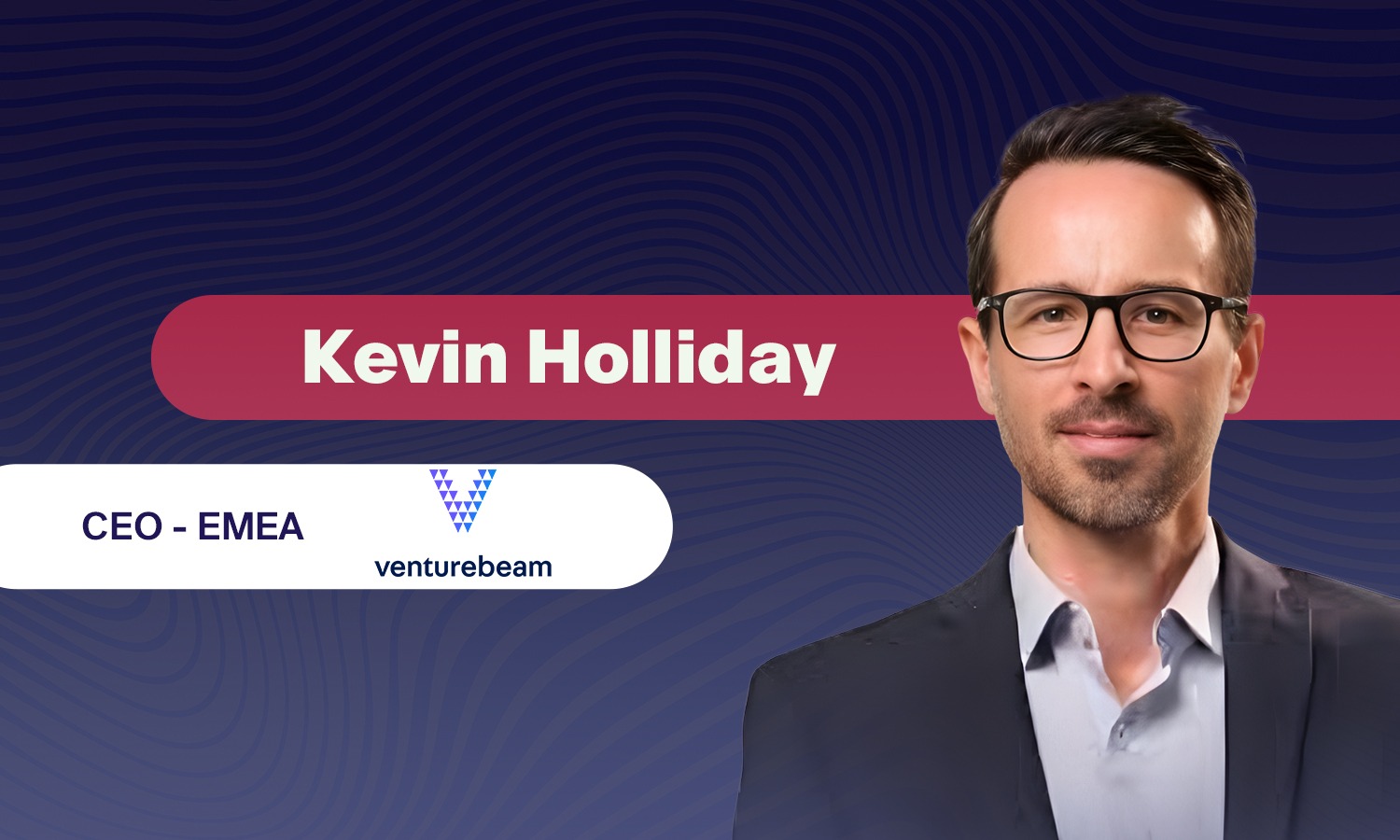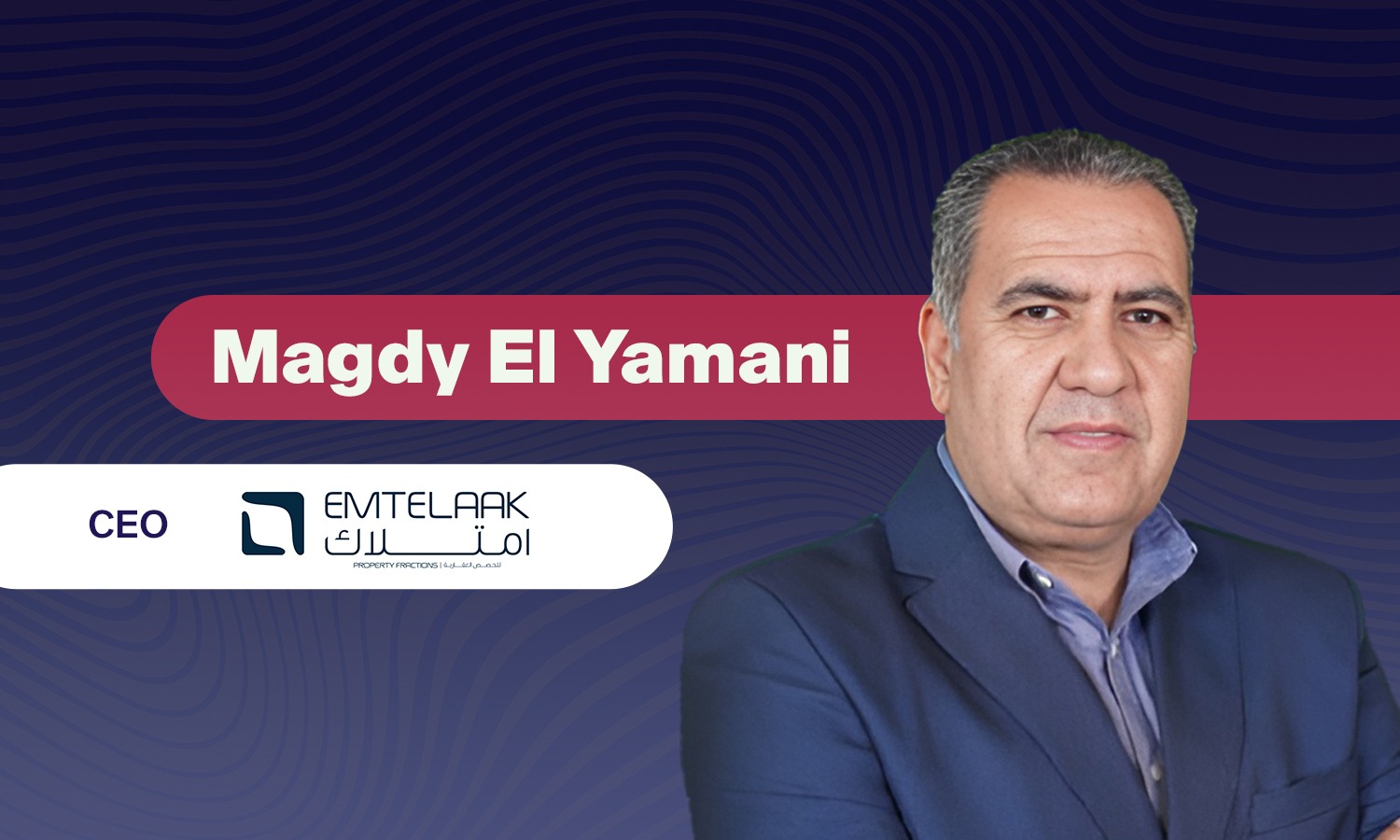Venturebeam: Powering EMEA’s Next Frontier
Updated 8/31/2025 9:00:00 AM
Arab Finance: In this exclusive interview, we speak with Kevin Holliday, CEO Europe, the Middle East, and Africa (EMEA) at Venturebeam, a global investment platform at the forefront of connecting capital with high-impact ventures.
Holliday shares his insights on leading Venturebeam’s strategic expansion across the Middle East and Africa (MEA), highlighting the company’s unique approach to curating and scaling mission-driven startups.
He further discusses the immense potential of the Egyptian entrepreneurial ecosystem, the key sectors poised for growth, from climate tech to fintech, and offers essential advice for local founders looking to attract global investment.
1- Congratulations on your recent appointment as CEO EMEA at Venturebeam. How has your vision and leadership shaped the company's strategy and growth since taking on this role? What priorities are you focusing on to expand Venturebeam's impact across the MEA?
Since assuming this role, my priority has been to align Venturebeam’s unique capabilities with the pressing needs of high-growth, impact-driven ventures throughout the MEA. We have refined our strategy around three core pillars: smarter deal curation, deeper investor-founder engagement, and scaling capital deployment through syndication.
Our platform not only facilitates investor access to capital-hungry ventures but also connects them with those shaping more sustainable and inclusive economies across the region.
We are also substantially investing in local partnerships and ecosystem-building initiatives, recognizing that lasting impact in this region stems from more than just capital, it comes from trust, shared value, and sustained collaboration.
Whether it is supporting impact ventures in underserved markets or accelerating climate-tech innovation, we are committed to positioning Venturebeam as a catalytic force driving measurable, mission-aligned growth throughout EMEA.
2- How does Venturebeam identify and curate high-impact companies from emerging markets?
We combine local intelligence with global impact standards. Our methodology leverages AI-supported screening alongside human insight to evaluate ventures on both commercial viability and measurable impact.
We work closely with ecosystem partners, including accelerators, development finance institutions (DFIs), and family offices, to surface high-potential startups, often before they come onto mainstream investor radars.
In emerging markets, we particularly focus on ventures tackling systemic challenges in sectors such as climate resilience, education, healthcare, and financial inclusion.
We look for founders with deep contextual knowledge, scalable solutions, and early traction, even when traditional financial metrics are still in development. This approach helps us identify companies with the potential to deliver strong returns alongside transformative local impact.
3- What unique challenges and opportunities do you see for startups in the MENA region, particularly Egypt?
Startups in Egypt are navigating a volatile macroeconomic environment but continue to demonstrate remarkable resilience. Access to capital at scale remains a significant challenge, especially beyond the seed stage.
However, Egypt’s young talent pool, expanding digital infrastructure, and vibrant entrepreneurial spirit present compelling opportunities, particularly in fintech (financial inclusion), edtech, and climate resilience. At the same time, we are witnessing growing interest from regional and global investors in impact-driven ventures originating from Egypt.
For startups that can demonstrate scalable business models, strong governance, and local relevance, the opportunity to establish themselves as regional leaders is genuine. With the right ecosystem support, including accelerators, supportive policies, and follow-on funding, Egypt has the potential to anchor a new generation of MENA-born scale-ups.
4- What unique characteristics make certain companies, like iSchool, stand out for inclusion on the Venturebeam platform?
iSchool exemplifies the qualities we seek: strong founding teams, clear product-market fit, and scalable impact. They are transforming STEM learning across MENA through AI-driven personalization. Their mission clarity and traction with over 130,000 students made them an obvious candidate for Venturebeam.
We also evaluate ventures based on our core pillars: impact potential, investor readiness, and the ability to scale via strategic partnerships. iSchool not only delivers measurable educational outcomes but also demonstrates operational maturity and a growth trajectory that resonates with our global investor community. Their solution addresses a critical regional gap in future-ready education, making them both commercially compelling and socially relevant.
5- Are there specific sectors in Egypt that Venturebeam is particularly focused on or optimistic about?
Yes, Venturebeam actively focuses on sectors that combine strong local relevance with scalable impact and global investor interest. We are particularly optimistic about:
Climate Tech & AgriTech: We see significant potential in technologies addressing critical resource challenges, from water scarcity to food security. Startups innovating in precision agriculture, sustainable irrigation, and climate adaptation can drive both environmental and economic resilience at scale.
Digital Health: We are closely monitoring ventures that expand access to affordable, quality healthcare, especially in rural or underserved areas. Solutions centered on telemedicine, diagnostics, mental health, and AI-enabled health platforms are well-positioned to meet growing demand.
EdTech: There is a critical opportunity for EdTech solutions that enhance accessibility, improve learning outcomes, and bridge skill gaps, particularly for students and job seekers outside major urban centers.
Fintech: The market shows continued momentum in digital payments, lending, savings, and financial literacy tools. We are especially focused on infrastructure-layer innovations that enable interoperability and promote broader financial inclusion across demographics.
Across all these sectors, we are most excited about ventures that demonstrate measurable impact, local adaptability, and strong potential for regional or global scale. Our platform is designed to highlight these startups to international investors who are increasingly seeking purpose-led, frontier-market opportunities.
6- How does Venturebeam's syndication platform facilitate investment and growth for Egyptian and African startups, and how does it help international investors discover and support these ventures?
Our platform reduces friction in cross-border investing. For startups, we bring capital, credibility, and often global co-investors. For investors, we provide diligence-ready deal flow through structured syndication models, making it easier to back ventures in markets like Egypt. We have helped startups gain exposure to institutional and strategic capital from the US, Europe, and the Gulf.
Additionally, we surface high-potential African ventures that are often overlooked by mainstream capital markets, leveraging a combination of local intelligence and global investor criteria.
By curating and verifying deal flow through our impact and commercial readiness assessments, we give international investors the confidence to deploy capital into emerging ecosystems, while enabling startups to scale beyond their local networks.
7- Could you share some insights on the typical size of investments Venturebeam makes in the Middle East, and which sectors currently command the lion's share of venture capital funding in this region?
Our syndications typically support Series A and later rounds, starting from $5 million and above. Currently, the most capitalized sectors include fintech, AI and enterprise technology, and energy transition, particularly green hydrogen, e-mobility, and grid solutions. Climate-linked ventures are gaining strong investor momentum across the board.
We are also seeing increased interest from regional limited partners (LPs) and family offices in climate and impact-aligned investments, often driven by national mandates and evolving ESG regulatory frameworks. This has fostered a favorable environment for scalable, tech-enabled solutions with measurable outcomes, especially those bridging infrastructure, digitalization, and sustainability.
8- What advice would you give to Egyptian startups seeking to attract global investment?
Build your story around scalability and clarity. Demonstrate traction, sound governance, and a clear plan for the use of funds. Global investors look for more than just local potential, they want founders who understand capital strategy, risk mitigation, and regional comparables. Having strong advisory boards and well-organized data rooms also goes a long way.
Do not underestimate the value of global storytelling. Positioning your solution as relevant beyond Egypt or MENA signals ambition and awareness of global trends. Investors often back founders who can communicate their vision with precision and confidently navigate cross-border scaling.
9- What is Venturebeam's long-term strategic approach for strengthening ties with the Egyptian entrepreneurship ecosystem?
We are deepening our connections with local venture capital firms, accelerators, and government-linked entities across the region to build a stronger pipeline and a more investable ecosystem.
Our goal is to bridge global capital with innovation by syndicating more deals, elevating visibility for founders, and expanding our network of mission-aligned investors worldwide.
Specifically in Egypt, we are exploring strategic partnerships with ecosystem enablers while identifying high-potential startups in sectors such as edtech, climate resilience, fintech, and health-tech.
We also aim to enhance investor readiness through collaborative workshops, exposure to international capital, and integration of our impact assessment tools, helping founders better align with institutional and climate-focused investors.
Related News












